David A. Leigh: Making the Tinest Machines
2020-03-10
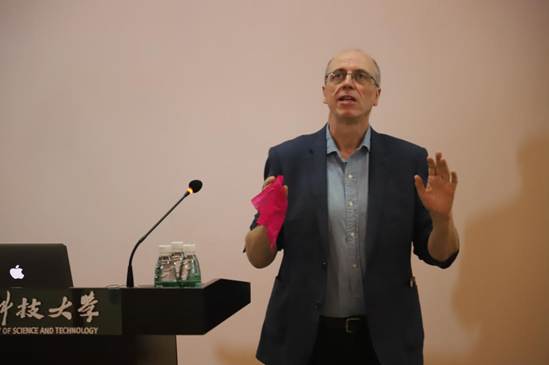
Guest Introduction
Prof. Leigh (Professor at the University of Manchester) is a member of the Royal Academy of Sciences and the European Academy of Sciences. He received his Ph.D. degree from University of Sheffield in 1987 and did postdoc during 1987-1989 in Canada. Prof. Leigh is one of the pioneers in the field of molecular machines and motors. He has published more than 270 papers with 14 in Nature or Science and with a citation of over 22,000 times. Prof. Leigh has received numerous awards, including the 2007 Izatt-Christensen Award, Feynman Prize, and EU Descarts Prize, the 2013 ERC Advanced Grant, the 2014 RSC Pedler Award, the 2017 RSC Perkin Prize, and 2019 ISNSCE Nanoscience Prize.
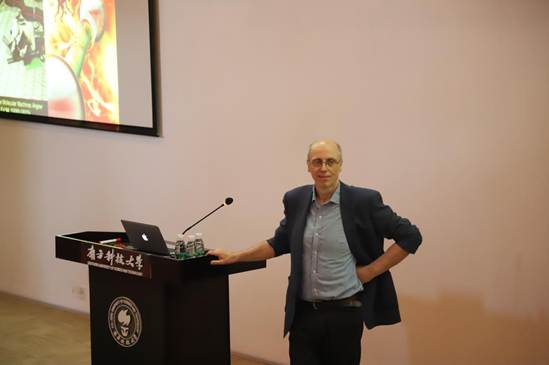
Prof. David A. Leigh
Lecture Detail
Molecular machines have been defined as “an assembly of a distinct number of molecular components that are designed to perform machine-like movements as a result of an appropriate external stimulation”. In this Lecture, Professor Leigh gave a detailed discussion on the characteristics, structure and function of molecular machines, and presented their amazing achievements on molecular machines.
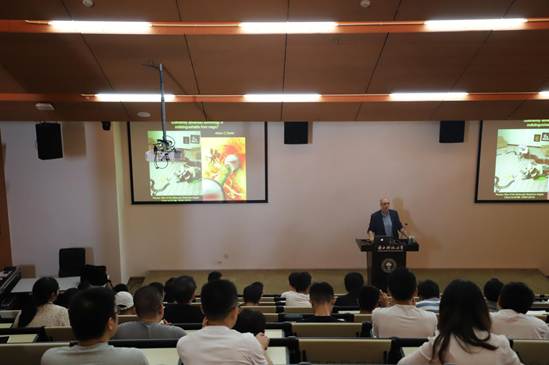
In the lecture
On the strategies for creating complex molecular machines, Professor Leigh pointed out that if simple machines were connected together, the assembled composite machine could achieve more difficult functions. He introduced Brownian ratcheting mechanism into the model of compound linkage molecular machine, and proposed that the components of [2] catenane should be regarded as orbital and orbital devices respectively. By using ratcheting principle, the direction of motion can be controlled, thus promoting the transformation of molecular machine from chemical equilibrium state to non-equilibrium state.
In addition, Professor Leigh also introduced the design and construction of molecular machines with specific sequence of tripeptides by simulating biological molecular machines, which can simulate ribosome functions.
Finally, Professor Leigh concluded his speech with the great significance and unlimited potential of molecular machines, encouraging researchers to dig deeper into the nature of scientific phenomena and build a systematic research system.
Q&A Session
In this Q&A Session, students asked some question regarding the future development of molecular machines and the possibility of operating molecular machine in water, and Prof. Leigh gave a detailed answer one by one.
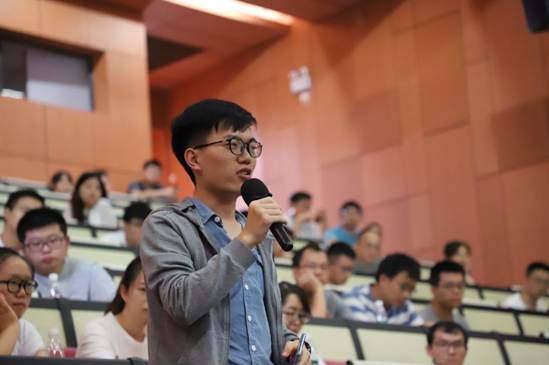
A student is asking question
After the Q&A session, Prof. Wei Jiang presented the honorary certificate of SUSTech to Prof. David A. Leigh, and the lecture ended successfully.
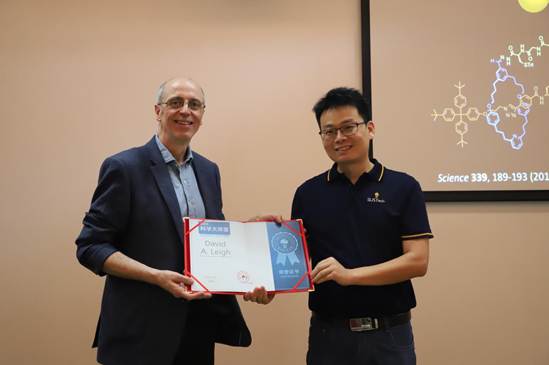
Prof. David A. Leigh and Prof. Wei Jiang (from left to right)




